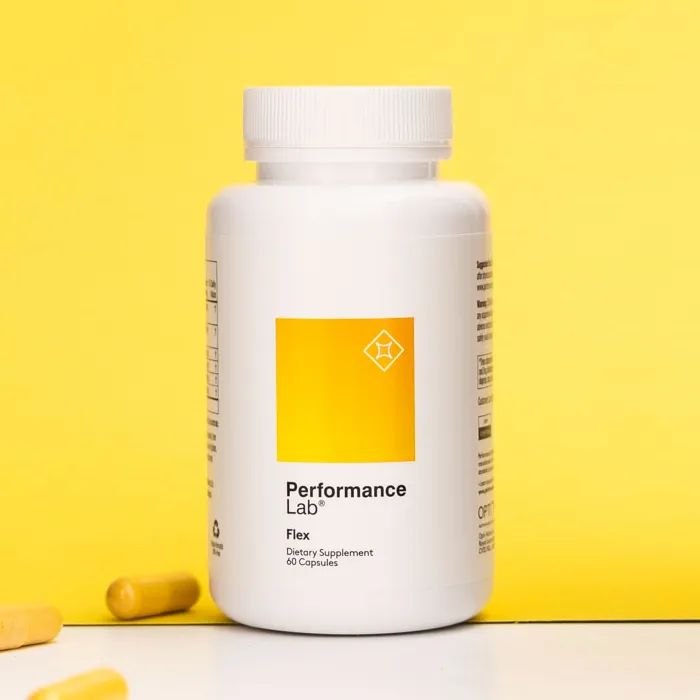You’ve probably heard about turmeric before. It’s the vibrant yellow-colored spice that offers a pungent aroma and flavor to many East Asian and Indian dishes, but that’s not all it does.
For centuries, Eastern medicine has known about the powerful medicinal benefit that this little root has to offer, but only recently have we caught on—and it seems to be nothing short of spectacular.
But on most supplement shelves, there’s two forms you’ll see: turmeric and curcumin. For consumers, this can get really confusing because most people aren’t familiar with what the difference is, or if there even is one, never mind which is better to buy.
So, we’re breaking it down for you. We’re giving you the rundown of what these two supplements are, what the difference between them is, and which one you should be taking.
Key Takeaways
- Turmeric and its active compound curcumin have well-studied anti-inflammatory and antioxidant properties that can benefit joints and whole-body health.
- Curcumin can help reduce joint discomfort and stiffness by modulating inflammatory pathways and protecting cartilage from oxidative stress.
- Absorption is a key issue—standard turmeric powder is poorly bioavailable, so optimized forms and co-ingredients are important for real-world results.
- Turmeric works best as part of a broader joint-care strategy that includes movement, strength work, and supportive nutrition.
- A high-quality joint supplement can make it easier to get effective turmeric/curcumin support in a consistent, daily dose.

What Is Turmeric?
If you’ve ever seen a root that resembles ginger but is on the smaller side, you’ve seen turmeric. It’s a rhizome that’s part of the ginger family that has been extensively used throughout India, China, and Southeast Asia as a spice, preservative, and coloring material, but it’s also widely consumed for its medicinal value 1.
It’s been touted to possess powerful anti-inflammatory, antioxidant, anticancer, and antimicrobial activity—all extensively backed by science—which is the product of its many compounds, and while there are several that exhibit medicinal properties, the curcuminoids have received considerably more attention than the others.
What Is Curcumin?
While turmeric refers to the actual root of the Curcuma longa plant, curcumin is one of the several bioactive constituents present in turmeric. The plant itself contains turmerin (a water-soluble peptide), essential oils (turmerones, atlantones, zingiberene) and curcuminoids, including curcumin 2; curcuminoids are phenolic compounds derived from the roots of Curcuma longa plant that hold some of the most prominent medicinal properties.
Studies show that curcumin possesses anti-inflammatory and anti-cancer properties, along with potent antioxidant capacity that can inhibit several cell signaling pathways at multiple levels, as well as affect cellular enzymes like cyclooxygenase (COX) and glutathione S-transferases, modulate immune function, and influence angiogenesis and cell–cell adhesion 2.
It’s also been shown to directly inhibit macrophage infiltration and nuclear factor κB (NF-κB) activation induced by inflammatory agents, along with decreasing the expression of proinflammatory adipokines tumor necrosis factor-α (TNFα), monocyte chemoattractant protein-1 (MCP-1), and plasminogen activator inhibitor type-1 (PAI-1) 3.
However, because curcumin exhibits low systemic bioavailability with oral supplementation, you’ll usually see it paired with a bioenhancer like black pepper (piperine), which has been shown to increase absorption by up to 2000% 2.
What’s The Difference?
The difference between these two guys is pretty simple and straightforward. Turmeric, or Cucuma longa, is the root or rhizome in which curcumin is derived from.
Whereas turmeric refers to the actual plant itself, curcumin is a bioactive compound contained in turmeric that’s responsible for many of its health-promoting properties.
However, when you look at the research, they have a lot of common benefits for:
- Inflammation
- Obesity
- Heart health
- Glucose metabolism
- Liver health
- Cancer
- Antimicrobial
Turmeric vs. Curcumin: Which Should You Take?
What you take will largely depend on what you’re looking to get from it. Because turmeric contains all of its natural bioactive compounds, including curcumin, it may be more beneficial for the treatment of certain conditions. Studies actually show that for something like a fungal infection, turmeric may be a better option than curcumin 4, 5.
However, for any condition involving an inflammatory component, curcumin is a much more potent anti-inflammatory and thus a better option 6. The same goes for type 2 diabetes, where curcumin has been shown to be effective due to its role in reducing glycemia and hyperlipidemia 7.
Final Thoughts
If you’re looking for the antioxidant and anti-inflammatory benefits that turmeric has to offer, chances are you want an ultra-concentrated form that’s going to combat the problem you’re looking to solve.
In most cases, curcumin has shown to be superior due to being a more concentrated, and thus more potent, source of curcuminoids compared to turmeric. And if you want the best that curcumin has to offer, look for Performance Lab® Flex CurcuWIN®.

It’s an ultramodern nutritional innovation that makes curcumin 46X more absorbable and is standardized to 20% curcuminoids in turmeric-identical ratios. It’s more bioavailable than any other curcumin supplement on the market for the ultimate in joint protection and comfort.
References
- P Gul, J Bakht. Antimicrobial activity of turmeric extract and its potential use in food industry.J Food Sci Technol. 2015;52(4):2272-2279.
- RA Sharma, AJ Gescher, WP Steward. Curcumin: the story so far.Eur J Cancer. 2005;41(13):1955-1968.
- PG Curcumin and obesity. Biofactors. 2013;39(1):78-87.
- C Chen, L Long, F Zhang, et al. Antifungal activity, main active components and mechanism of Curcuma longa extract against Fusarium graminearum.PLoS One. 2018;13(3):e0194284.
- SZ Moghadamtousi, HA Kadir, P Hassandarvish, H Tajik, S Abubakar, K Zandi. A review on antibacterial, antiviral, and antifungal activity of curcumin.Biomed Res Int. 2014;2014:186864.
- SK Jain, J Rains, J Croad, B Larson, K Curcumin supplementation lowers TNF-alpha, IL-6, IL-8, and MCP-1 secretion in high glucose-treated cultured monocytes and blood levels of TNF-alpha, IL-6, MCP-1, glucose, and glycosylated hemoglobin in diabetic rats.Antioxid Redox Signal. 2009;11(2):241-249.
- DW Zhang, M Fu, SH Gao, JL Liu. Curcumin and diabetes: a systematic review.Evid Based Complement Alternat Med. 2013;2013:636053.
















